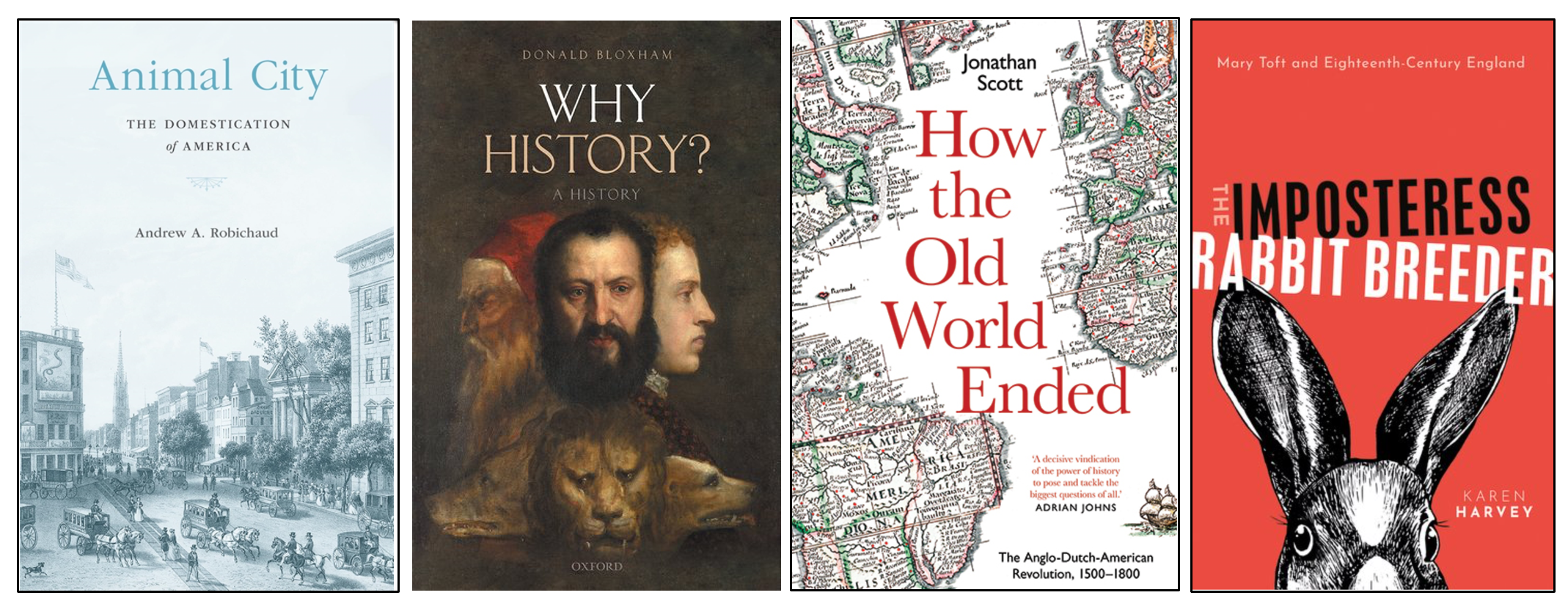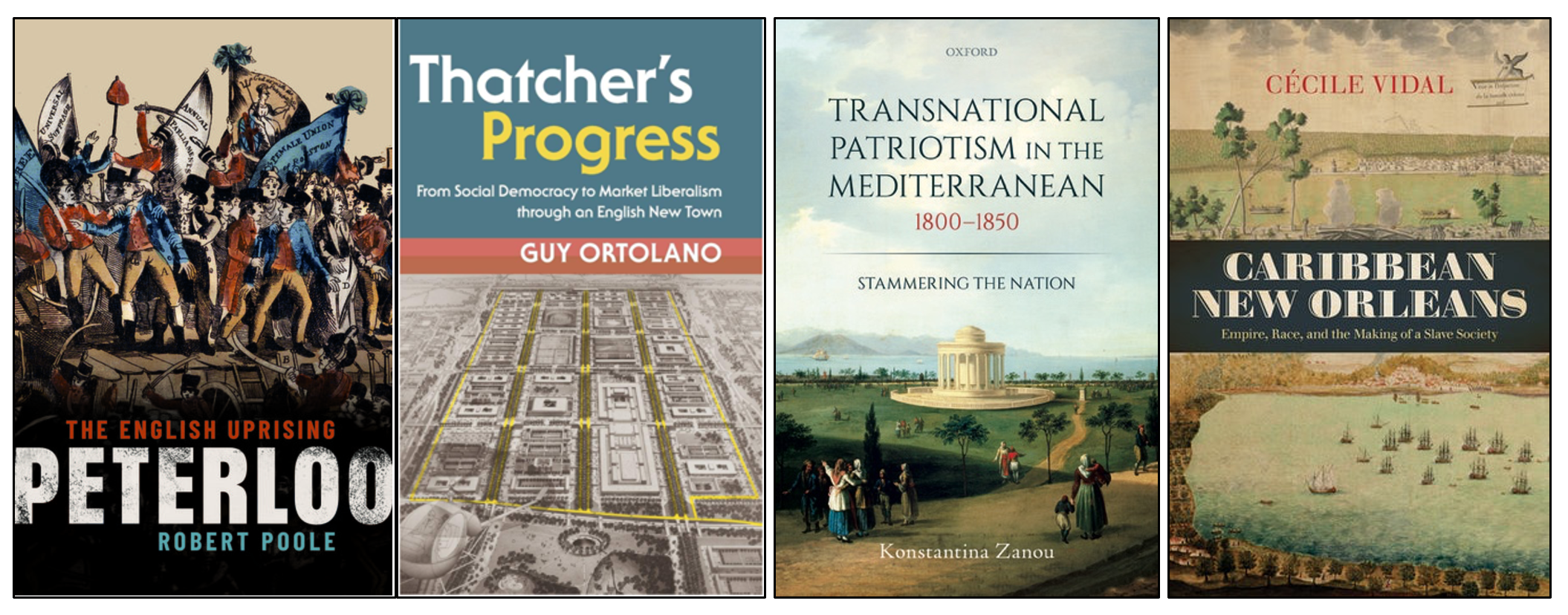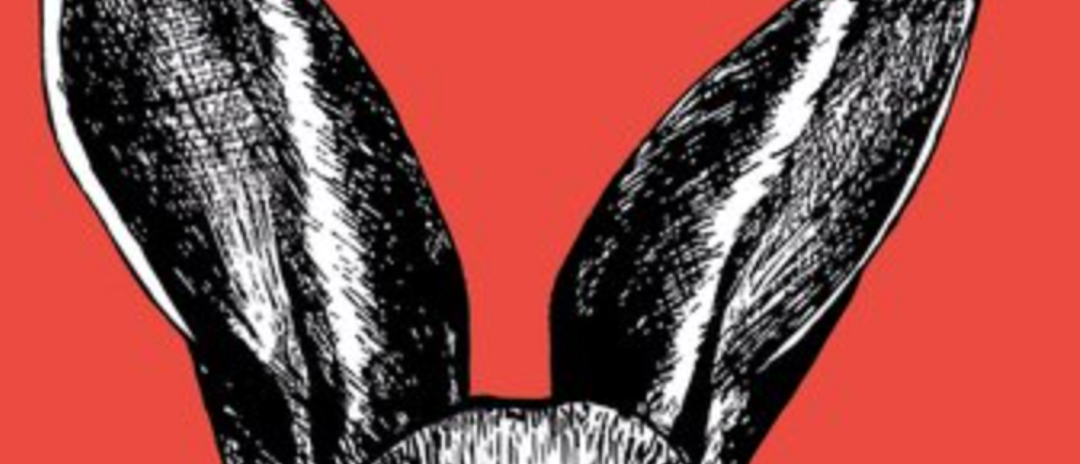By Philip Carter and Vanessa Rockel
In this post we review a year of History books as featured in the IHR’s Reviews in History. Reviews is a free weekly service providing extended commentaries and responses on notable titles published in 2019-20.
Reviewing is an established and important part of scholarly life, but it’s also one that relies on the good will and civic spirit of our community. In a year of unforeseen and unprecedented change, these qualities have been very much in demand. We thank all those who review, for the IHR and other journals, for enabling us to keep the conversation going.
Over the past 12 months, the IHR’s Reviews in History has published extended essays, and author responses, on 75 notable new History books.
Titles range from AI Narratives: A History of Imaginative Thinking about Intelligent Machines to Married Life in the Middle Ages, 900-1300 by Elizabeth van Houts; from The Sacred Home in Renaissance Italy to Mira L. Seigelberg’s Statelessness: A Modern History.
Titles are chosen by the Reviews editorial team with help from our editorial board, and from readers’ suggestions which we always welcome. Our reviewers are asked to provide a text that not only outlines and assesses the book, but also locates the chosen work in a wider historiographical context which is accessible to the non-specialist.
At 2000-2500 words each, IHR Reviews are longer than those found in many academic journals and allow for this situating and assessment. On each occasion we also invite a book’s author or editors to respond and engage in dialogue with the reviewer: to thank, agree, clarify, expand, rethink, question, rebut or dispute—with both essays published simultaneously in weekly updates.

This year we’ve sought to identify new books that address common themes, albeit across different chronologies and geographies. Topics include emerging histories of human engagement with animals, and nature: among them, Andrew A. Robichaud’s Animal City: The Domestication of America, Diana Donald’s Women against Cruelty: Protection of Animals in Nineteenth-Century Britain, Thomas Almeroth-Williams’ City of Beasts: How Animals Shaped Georgian London, and Strother E. Roberts’ Colonial Ecology, Atlantic Economy: Transforming Nature in Early Modern England.
Other combinations address the value of historical study in historical context (notably, Donald Bloxham’s two 2020 volumes, History and Morality and Why History? A History) and of historical periodisation and change—be this with reference to global statecraft (How the Old World Ended: The Anglo-Dutch-American Revolution, 1500-1800, by Jonathan Scott) or understandings of the physical and metaphysical world: Ethan H. Shagan’s The Birth of Modern Belief: Faith and Judgement from the Middle Ages to the Enlightenment; Michael Hunter’s The Decline of Magic: Britain in the Enlightenment; and The Impostress Rabbit Breeder: Mary Toft and Eighteenth-Century England, Karen Harvey’s microhistory of the meanings of a celebrated monstrous birth.
As befits a year dominated by the coronavirus pandemic, selected reviews continued the medical historical theme with a focus on disease, including Robert Peckham’s edited collection Empire and Epidemic and Kevin Siena’s Rotten Bodies: Class and Contagion in 18th-century Britain.

Looking back over this year’s reviews we can trace further connections, among them a set of new titles marking anniversaries in early nineteenth-century English radicalism (an edited collection rethinking The Cato Street Conspiracy, Robert Poole’s Peterloo: The English Uprising, and Peterloo: Witness to a Massacre—our first ever graphic history text) alongside new studies of Conservative thinkers and thought: Emily Jones’s Edmund Burke and the Invention of Modern Conservatism, 1830-1914, Edmund Burke and the British Empire in the West Indies: Wealth, Power, and Slavery by P.J. Marshall, and Guy Ortolano’s Thatcher’s Progress: From Social Democracy to Market Liberalism through an English New Town.
Professor Ortolano’s study of the English town of Milton Keynes is among many 2020 reviews rooted in place: from the English parishes of Wem and Myddle to Anindita Ghosh’s Claiming the City: Protest, Crime and Scandals in Colonial Calcutta, c.1860-1920, Kevin W. Fogg’s Indonesia’s Islamic Revolution, and a clutch of works relating to the coasts and crossings of southern European, the Middle East and North Africa: with Hannah Barker’s That Most Precious Merchandise: The Mediterranean Trade in Black Sea Slaves, 1260-1500, Konstantina Zanou’s Transnational Patriotism in the Mediterranean, 1800-1850, and Mediterranean Encounters: Trade and Pluralism in Early Modern Galata, by Fariba Zarinebaf.
As in previous years, histories of North America and the Caribbean are well represented. 2020 titles include W. Caleb McDaniel’s Pulitzer Prize winning Sweet Taste of Liberty (which recounts how an enslaved woman Henrietta Wood sought restitution from her former captor), On Middle Ground, a history of the Baltimore Jewish community, Cécile Vidal’s Caribbean New Orleans: Empire, Race, and the Making of a Slave Society, and Department Stores and the Black Freedom Movement by Traci Parker.

This is also an opportunity to thank all those who’ve contributed to the IHR’s Reviews in History this year—as reviewers, responders, editors, advisers, proposers or publishers. This is especially so in 2020 when added work pressures and distribution challenges have meant that important academic pursuits, such as reviewing, have been squeezed by more immediate priorities and demands. Thank you all.
The first choices for Reviews in History 2021 will appear from early in January. If you’d like to write and review for us then please do get in touch. Likewise, please sign-up via the Reviews homepage to be sent 2021’s reviews by email in weekly instalments.
Vanessa Rockel is Managing Editor of ‘Reviews in History’ and the IHR’s Fellowships Officer; Philip Carter is Director of Digital and Publishing at the IHR.

